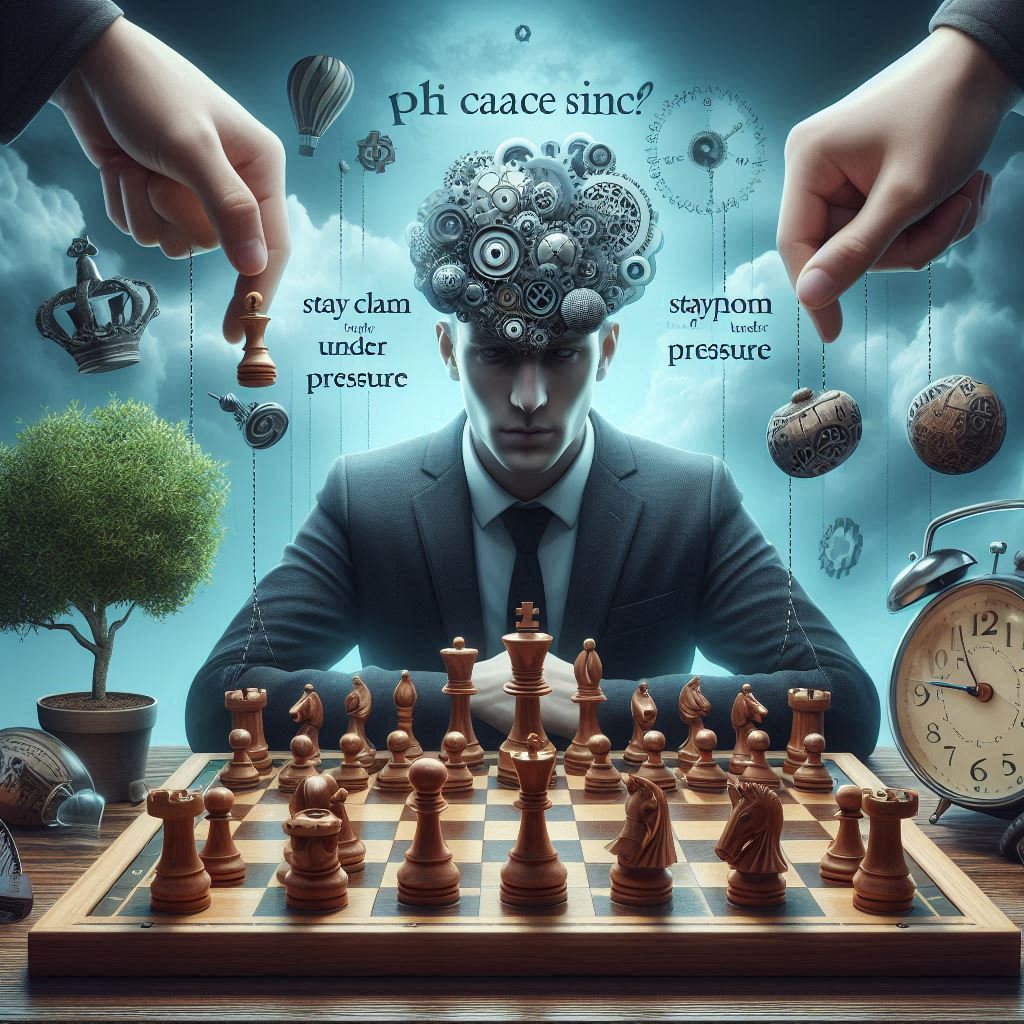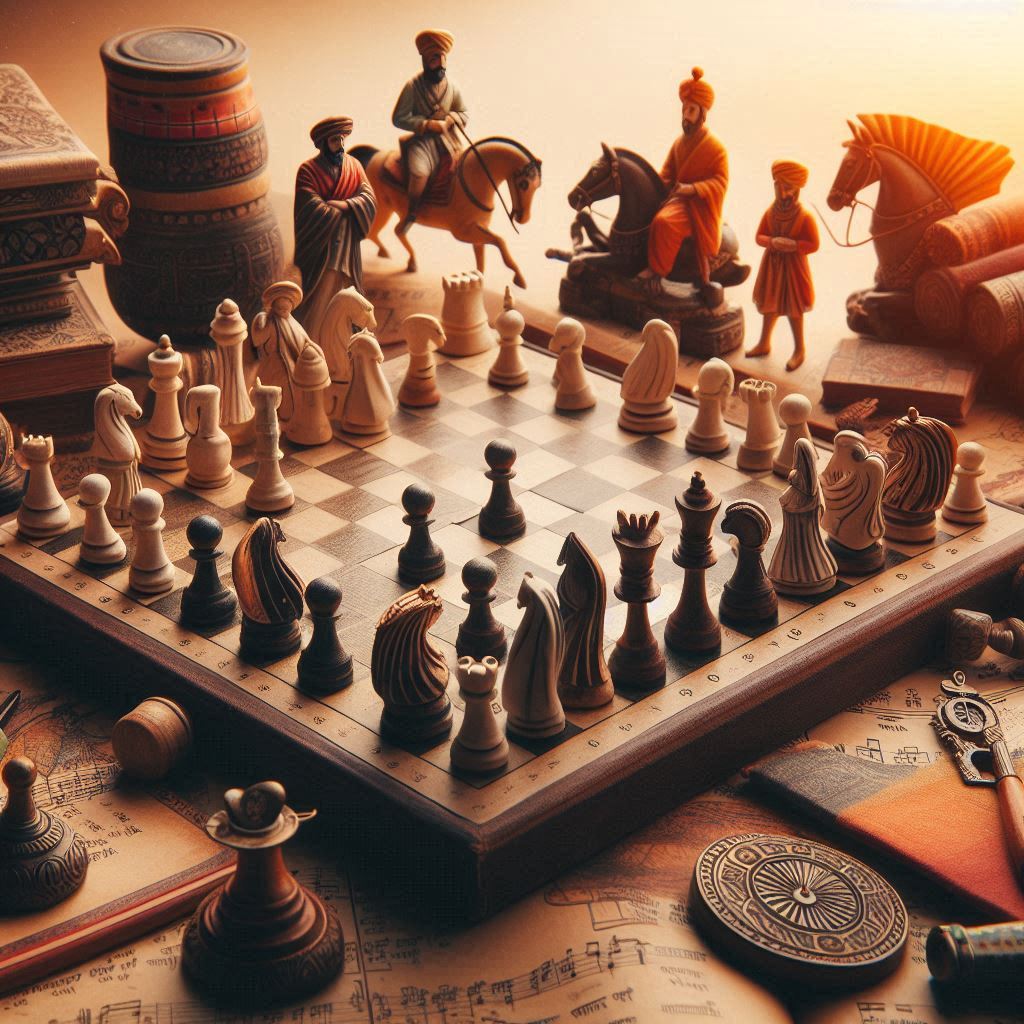Introduction
Chess is not just a game of strategy; it’s a profound test of mental endurance and psychological fortitude. Understanding the psychology of chess and mastering the art of staying calm under pressure can significantly elevate your performance. This guide delves into the psychological aspects of chess, offering practical tips to maintain composure and make sound decisions even in high-stress situations.
The Mental Demands of Chess
Chess requires intense concentration, deep calculation, and the ability to anticipate an opponent’s moves. These demands can create significant psychological pressure, especially during competitive play. Recognizing and managing these mental challenges is crucial for success.
Understanding Pressure in Chess
Sources of Pressure
Pressure in chess can come from various sources:
- Competitive Environment: Tournaments and matches often heighten stress levels.
- Time Constraints: The ticking clock can amplify anxiety.
- Expectation: Self-imposed or external expectations to perform well can create additional pressure.
Effects of Pressure
Pressure can lead to:
- Cognitive Overload: Difficulty in thinking clearly or calculating accurately.
- Emotional Response: Feelings of anxiety, frustration, or even fear.
- Physical Symptoms: Increased heart rate, sweating, or trembling.
Staying Calm Under Pressure
Developing Mental Resilience
Mental resilience is the ability to stay focused and composed in the face of adversity. To develop this resilience:
- Practice Mindfulness: Engage in mindfulness exercises to enhance concentration and reduce anxiety.
- Build a Routine: Establish a pre-game routine to create a sense of normalcy and control.
Visualization Techniques
Visualization involves mentally rehearsing game scenarios. This technique helps players anticipate potential situations and develop strategies to handle them calmly.
Effective Breathing Techniques
Breathing exercises can help manage stress and maintain focus. Techniques such as deep breathing or the 4-7-8 method (inhale for 4 seconds, hold for 7 seconds, exhale for 8 seconds) can calm the mind and body.
Cognitive Behavioral Strategies
Cognitive Behavioral Therapy (CBT) techniques can be applied to chess:
- Positive Self-Talk: Replace negative thoughts with positive affirmations.
- Reframing: View challenging situations as opportunities to learn and grow rather than threats.
The Role of Experience
Experience plays a vital role in handling pressure. The more you play, especially in competitive settings, the better you become at managing stress. Reflect on past games to identify patterns and develop strategies for improvement.
Maintaining Physical Health
Physical well-being directly impacts mental performance. Ensure you:
- Exercise Regularly: Physical activity reduces stress and enhances cognitive function.
- Eat Healthily: A balanced diet fuels the brain and body for optimal performance.
- Get Adequate Sleep: Rest is crucial for maintaining focus and cognitive clarity.
Building a Support System
A strong support system provides emotional encouragement and practical advice. Engage with fellow players, coaches, or mentors who can offer insights and support.
Analyzing and Learning from Mistakes
Instead of dwelling on mistakes, use them as learning opportunities. Analyze your games to understand where you went wrong and how you can improve. This proactive approach reduces the fear of failure and builds confidence.
Staying Calm During a Game
Break the Game into Phases
Divide the game into opening, middlegame, and endgame phases. Focus on each phase individually to avoid feeling overwhelmed.
Focus on the Process, Not the Outcome
Concentrate on making the best possible moves rather than fixating on winning or losing. This shift in focus can alleviate pressure and improve decision-making.
Use Time Wisely
Manage your time effectively to avoid time pressure. Allocate more time to complex positions and make quicker decisions in straightforward situations.
FAQs
How can I improve my concentration during a game?
Practice mindfulness and engage in regular mental exercises to enhance your focus. Establish a consistent pre-game routine to help settle your mind.
What should I do if I start feeling anxious during a match?
Take deep breaths, visualize positive outcomes, and remind yourself of past successes. Use techniques like positive self-talk to calm your nerves.
How can I handle the pressure of high-stakes games?
Prepare thoroughly, both mentally and physically. Break the game into manageable phases, and focus on the process rather than the outcome.
Is it normal to feel physical symptoms of stress during chess games?
Yes, physical symptoms like increased heart rate and sweating are common. Use relaxation techniques to manage these symptoms.
Can playing more games help me handle pressure better?
Absolutely. The more you play, especially in competitive settings, the more accustomed you become to managing stress and pressure.
How important is physical health in chess?
Very important. Physical health impacts cognitive function, concentration, and overall performance. Regular exercise, a healthy diet, and sufficient sleep are crucial.
Conclusion
Mastering the psychology of chess and learning to stay calm under pressure is essential for success in this demanding game. By developing mental resilience, practicing effective stress management techniques, and maintaining physical health, you can improve your performance and enjoy the game more fully. Embrace the psychological challenges of chess as opportunities to grow and excel both on and off the board.



